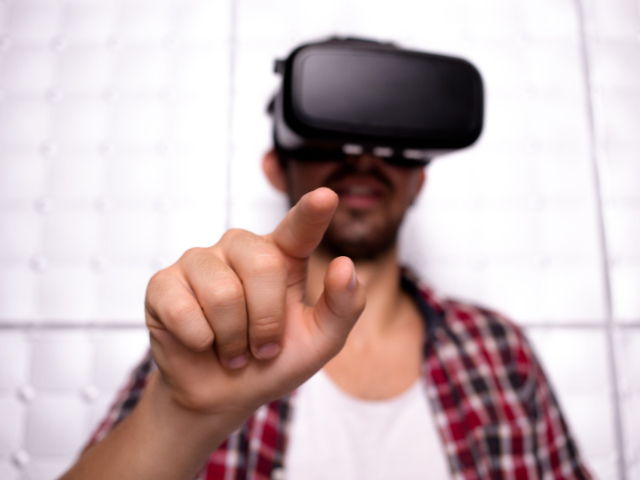Tell Me More About this Immersive VR Platform
Labeled as “empathetic nurse training” by TIME, the immersive VR platform provides true-to-life scenarios, allowing students to practice “caring for real-life patients.” It has been in use since 2017 but was upgraded this year to include “scenes featuring patients who are transgender, Black, or living with stigmatized conditions such as HIV and mpox,” TIME reported.
Facilities or universities that use the platform have the option to customize scenarios to their patient populations and can record dialogue.
Bailey Arrata, a senior at National University, uses UbiSim immersive virtual reality as part of her training.
“I have a patient-facing role and have been in hospitals for 10 years, but treating patients is totally different,” Arrata said in a case study on the product’s website. “The nursing performance part is the hardest, and being able to practice that a million times with UbiSim has definitely calmed my anxiety a lot. I truly believe practice makes perfect and permanent learning.”
TIME editors stated that nominations came from the publication’s global pool of editors and correspondents with “special attention to growing fields” like healthcare, AI, and green energy. Submissions were evaluated on originality, efficacy, ambition, and impact, TIME stated.









